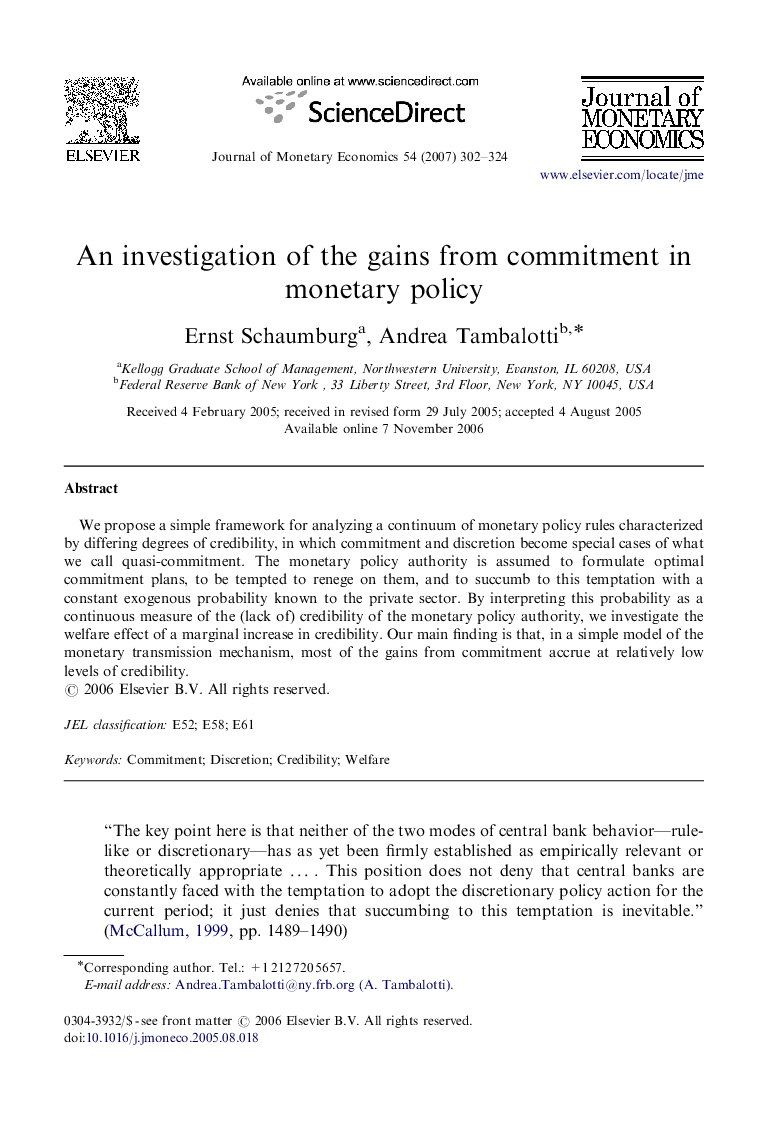| Article ID | Journal | Published Year | Pages | File Type |
|---|---|---|---|---|
| 967235 | Journal of Monetary Economics | 2007 | 23 Pages |
Abstract
We propose a simple framework for analyzing a continuum of monetary policy rules characterized by differing degrees of credibility, in which commitment and discretion become special cases of what we call quasi-commitment. The monetary policy authority is assumed to formulate optimal commitment plans, to be tempted to renege on them, and to succumb to this temptation with a constant exogenous probability known to the private sector. By interpreting this probability as a continuous measure of the (lack of) credibility of the monetary policy authority, we investigate the welfare effect of a marginal increase in credibility. Our main finding is that, in a simple model of the monetary transmission mechanism, most of the gains from commitment accrue at relatively low levels of credibility.
Related Topics
Social Sciences and Humanities
Economics, Econometrics and Finance
Economics and Econometrics
Authors
Ernst Schaumburg, Andrea Tambalotti,
